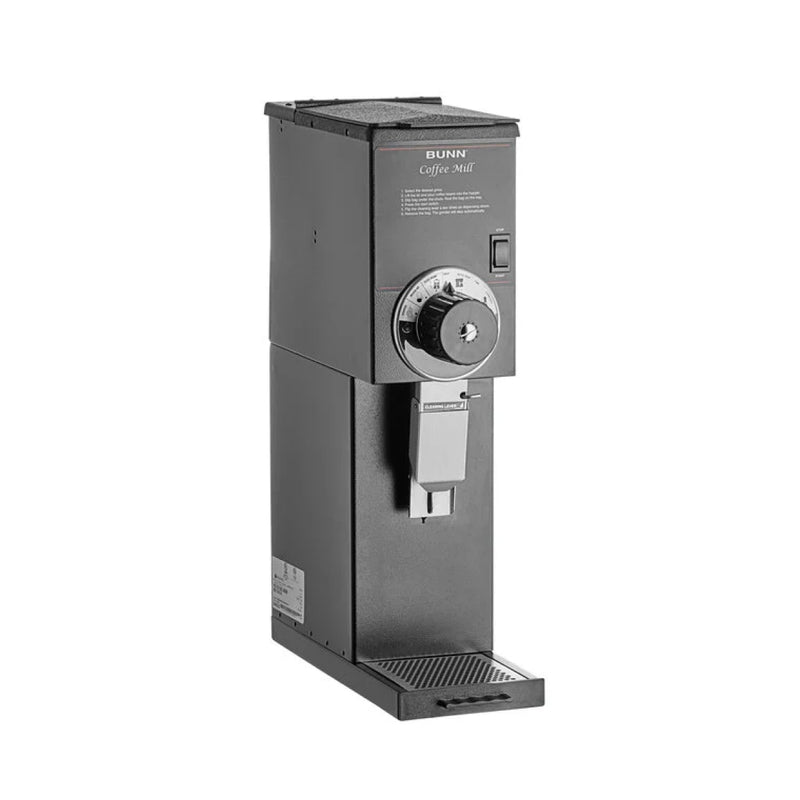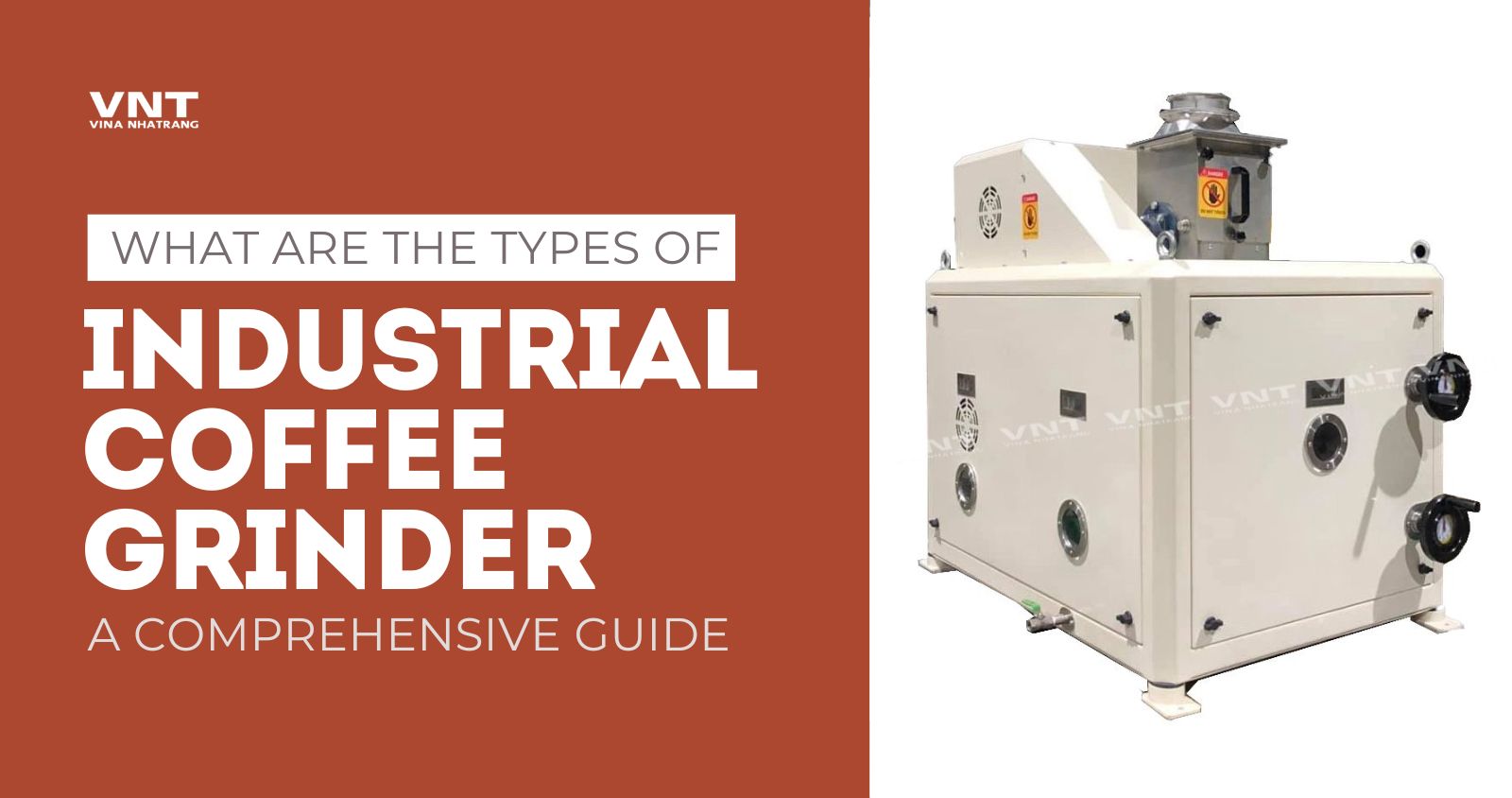Exactly How to Select the Perfect Industrial Coffee Mill for Your Organization
Choosing the ideal industrial coffee mill for your organization is a diverse decision that requires mindful factor to consider of several crucial elements. It is important to assess your specific grinding demands, consisting of the quantity of coffee processed and the wanted work uniformity, as these elements straight impact flavor and customer fulfillment. In addition, understanding the numerous types of grinders offered can substantially influence your operational efficiency. As you navigate these considerations, one should also consider the implications of budget plan and maintenance. What other variables could make or damage your selection?
Assess Your Grinding Needs
When picking a commercial coffee grinder, one should initially assess their grinding needs to make certain ideal efficiency and uniformity. This first evaluation includes comprehending the quantity of coffee to be processed daily, as well as the desired work dimension for numerous developing approaches. A high-capacity grinder might be required for companies serving large amounts of coffee, while smaller sized operations may find an extra small design adequate.
Furthermore, it is vital to think about the kinds of coffee beans being used, as different beans may need particular grinding methods to achieve the most effective taste profile. For circumstances, oily beans could demand a grinder developed to deal with such qualities without clumping or overheating.
Specialty coffee organizations usually require accurate work sizes to improve extraction and flavor, making it essential to choose a mill that can supply uniform outcomes. Evaluating the readily available area and electrical needs will certainly help in selecting a grinder that fits flawlessly into your operational process.
Understand Mill Types
Comprehending the various kinds of commercial coffee grinders is vital for making an educated selection that fulfills certain operational requirements. There are mainly two classifications of grinders: blade grinders and burr grinders.
Blade mills use rotating blades to slice the coffee beans, resulting in an inconsistent grind dimension - Industrial Coffee Grinder. While they might be much more budget-friendly, they are typically not ideal for industrial applications where precision is crucial
On the various other hand, burr mills provide an extra consistent grind by crushing the beans between 2 surfaces. They can be more categorized into level burr and conical burr grinders. Apartment burr grinders provide a regular work size and are usually preferred for espresso prep work, while conelike burr mills are flexible and can manage a series of mixture approaches, from coffee to French press.
When picking a mill, consider the specific requirements of your service, consisting of desired grind consistency, production volume, and the kinds of coffee beverages you intend to provide - Industrial Coffee Grinder. Each grinder type has its benefits and restrictions, so recognizing these nuances enables informed decision-making that aligns with operational objectives
Evaluate Work Size Uniformity
Accomplishing grind dimension uniformity is essential for creating high-quality coffee, as variants in bit dimension can significantly impact extraction and taste. When picking a commercial coffee mill, it is crucial to assess just how well the equipment maintains harmony in grind dimension throughout different batches. Irregular work dimensions can lead to irregular removal, resulting in a cup that might taste weak or overly bitter.
To evaluate grind dimension uniformity, consider grinders with functions such as flexible work setups and top quality burrs. Burr grinders, particularly, master producing consistent particle dimensions contrasted to blade mills. The product and shape of the burrs play a crucial function, with stainless steel and ceramic alternatives offering resilience and precision.

Take Into Consideration Manufacturing Capability
In the fast-paced globe of coffee production, considering production capability is extremely important for companies aiming to fulfill need without compromising quality. The manufacturing capability of a commercial coffee grinder directly affects a company's ability to fulfill orders successfully, take care of stock, and react to rising and fall market fads.
When examining production ability, it is necessary to examine the grinder's outcome rate, commonly determined in extra pounds per hour. This dimension must align with your organization's predicted sales volume and growth targets. For example, a café with a high turn over may require a mill that can refine numerous hundred extra pounds daily, while a smaller procedure could be adequate with a reduced capacity design.
Furthermore, think about the kind of coffee being processed. Different beans and blends may affect grinding speed and efficiency, necessitating a grinder efficient in handling diverse manufacturing requirements. It's additionally worth factoring in the grinder's capacity to keep constant top quality under high output conditions, as any type of fluctuations can influence the final pop over to this site item.
Ultimately, choosing a grinder that matches your service's production capability will guarantee you stay affordable and responsive to consumer assumptions.

Spending Plan and Maintenance Variables
When assessing the best commercial coffee mill, upkeep and budget plan elements play a considerable role in the general decision-making procedure,. An initial financial investment in a top notch grinder can produce lasting advantages, but it's vital to establish a clear budget plan that lines up with your business's operational requirements. Think about both the acquisition cost and prospective functional prices, such as other power intake and substitute components.
Industrial coffee mills call for routine upkeep to guarantee ideal efficiency and durability. Assess the manufacturer's referrals for maintenance, including cleaning timetables and components replacement, as these will influence long-lasting operational prices.

Purchasing a mill that is resilient yet very easy to preserve can conserve money with time. While lower-priced options might be appealing, they might incur greater maintenance expenses and reduced effectiveness. Ultimately, balancing initial prices with long-lasting upkeep and operational performance will guide you to the ideal choice for your service's coffee grinding needs.
Final Thought
Choosing the excellent industrial coffee grinder requires a thorough evaluation of grinding needs, grinder types, grind size consistency, manufacturing capability, and budgetary considerations. A well-chosen mill not just improves the top quality of the coffee generated yet additionally adds to the total success and earnings of the venture.
Specialized coffee services usually require specific work sizes to improve extraction and taste, making it essential to choose a grinder that can provide uniform outcomes. Apartment burr grinders provide a consistent grind size and are normally preferred for coffee prep work, while cone-shaped burr grinders are functional and can take care of a variety of mixture approaches, from espresso to French press.
When selecting a commercial coffee mill, it is important to examine how well the machine keeps uniformity in grind size across various sets. Burr grinders, in particular, stand out in producing uniform particle dimensions compared to blade grinders.Choosing the suitable industrial coffee mill requires an extensive assessment of grinding demands, grinder kinds, grind dimension uniformity, manufacturing capacity, and financial considerations.